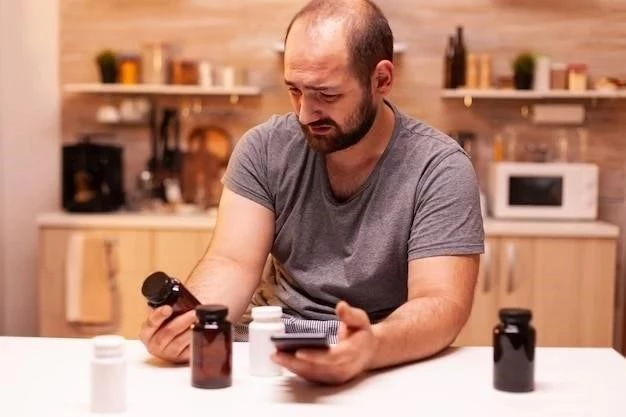How To Take Prednisone

Prednisone is a corticosteroid drug that reduces inflammation and immune system activity. It is used to treat a variety of conditions, including allergies, asthma, arthritis, and lupus. Prednisone is available in tablet, liquid, and injection form. The dosage of prednisone will vary depending on the condition being treated and the individual patient.
Dosage
The dosage of prednisone will vary depending on the condition being treated and the individual patient. The usual starting dose for adults is 5-60 mg per day, taken once or twice daily. The dose may be gradually increased or decreased as needed. Prednisone should be taken with food to reduce stomach upset.
Initial Dosage
The initial dosage of prednisone will vary depending on the condition being treated and the individual patient. The usual starting dose for adults is 5-60 mg per day, taken once or twice daily. For children, the starting dose is typically 0.14-2 mg/kg/day, divided into one or two daily doses. The dose may be gradually increased or decreased as needed.
Prednisone should be taken with food to reduce stomach upset. It is important to take prednisone exactly as prescribed by your doctor. Do not skip doses or stop taking the medication suddenly, as this can lead to serious side effects.
If you have any questions or concerns about the dosage of prednisone, be sure to talk to your doctor.
Dosage Adjustments
The dosage of prednisone may need to be adjusted based on the patient’s response to treatment and the severity of their condition. The dose may be increased if the patient is not responding adequately to the initial dose, or it may be decreased if the patient is experiencing side effects.
In some cases, the dose of prednisone may need to be tapered gradually over time. This is done to reduce the risk of side effects and to prevent the adrenal glands from becoming dependent on the medication.
It is important to follow your doctor’s instructions carefully when taking prednisone. Do not adjust the dose on your own, as this can lead to serious side effects.
If you have any questions or concerns about the dosage of prednisone, be sure to talk to your doctor.
Administration
Prednisone can be taken orally, by injection, or by rectum. The oral form is the most common and is typically taken once or twice daily with food. The injection form is typically given once or twice daily into a muscle or vein. The rectal form is typically given once or twice daily as a suppository.
It is important to take prednisone exactly as prescribed by your doctor. Do not skip doses or stop taking the medication suddenly, as this can lead to serious side effects;

Oral Administration
Prednisone is typically taken orally, once or twice daily with food. The tablets should be swallowed whole with a full glass of water. Do not crush or chew the tablets.
If you are taking prednisone once daily, it is best to take it in the morning. This will help to prevent insomnia.
If you are taking prednisone twice daily, take one dose in the morning and one dose in the evening.
It is important to take prednisone exactly as prescribed by your doctor. Do not skip doses or stop taking the medication suddenly, as this can lead to serious side effects.
If you have any questions or concerns about taking prednisone orally, be sure to talk to your doctor.
Liquid Form
Prednisone is also available in liquid form. The liquid form is typically taken once or twice daily with food. The dose of liquid prednisone is measured in milligrams (mg).
To take liquid prednisone, use the oral syringe or dosing cup that came with your medication. Do not use a household spoon, as this may not give you the correct dose.
Swallow the liquid prednisone with a full glass of water. Do not crush or chew the tablets.
If you are taking liquid prednisone once daily, it is best to take it in the morning. This will help to prevent insomnia.
If you are taking liquid prednisone twice daily, take one dose in the morning and one dose in the evening.
It is important to take liquid prednisone exactly as prescribed by your doctor. Do not skip doses or stop taking the medication suddenly, as this can lead to serious side effects.
If you have any questions or concerns about taking liquid prednisone, be sure to talk to your doctor.
Side Effects
Prednisone can cause a variety of side effects, including⁚
- Increased appetite
- Weight gain
- Fluid retention
- High blood pressure
- Mood changes
- Insomnia
- Acne
- Increased hair growth
- Skin thinning
- Muscle weakness
- Bone loss
- Increased risk of infection
Common Side Effects
The most common side effects of prednisone include⁚
- Increased appetite
- Weight gain
- Fluid retention
- Mood changes
- Insomnia
- Acne
These side effects are typically mild and will go away once you stop taking prednisone. However, if you experience any severe side effects, be sure to talk to your doctor.
Serious Side Effects
In rare cases, prednisone can cause serious side effects, including⁚
- High blood pressure
- Diabetes
- Osteoporosis
- Cushing’s syndrome
- Increased risk of infection
- Mental health problems
These side effects are more likely to occur in people who take prednisone for long periods of time or in high doses. If you experience any serious side effects, be sure to talk to your doctor immediately.
Precautions
Before taking prednisone, be sure to talk to your doctor about any other medical conditions you have, including⁚
- High blood pressure
- Diabetes
- Osteoporosis
- Cushing’s syndrome
- Mental health problems
Prednisone can worsen these conditions, so it is important to be closely monitored by your doctor if you have any of these conditions.
Contraindications
Prednisone is contraindicated in people who have⁚
- A systemic fungal infection
- A known hypersensitivity to prednisone or any of its ingredients
Prednisone should also be used with caution in people who have⁚
- High blood pressure
- Diabetes
- Osteoporosis
- Cushing’s syndrome
- Mental health problems
Prednisone can worsen these conditions, so it is important to be closely monitored by your doctor if you have any of these conditions.

Warnings
Prednisone can suppress the immune system, making you more susceptible to infections. Be sure to wash your hands frequently and avoid contact with people who are sick.
Prednisone can also increase your blood sugar levels, so it is important to monitor your blood sugar closely if you have diabetes.
Prednisone can cause fluid retention, so it is important to weigh yourself regularly and report any sudden weight gain to your doctor.
Prednisone can also cause mental health problems, such as depression and anxiety. Be sure to talk to your doctor if you experience any changes in your mood or behavior.
Prednisone can also cause osteoporosis, so it is important to take calcium and vitamin D supplements if you are taking prednisone for a long period of time.
Interactions
Prednisone can interact with a variety of other medications, including⁚
- Blood thinners
- Diabetes medications
- High blood pressure medications
- Birth control pills
- Vaccines
Be sure to tell your doctor about all of the medications you are taking, including over-the-counter medications and supplements.
Drug Interactions
Prednisone can interact with a variety of other medications, including⁚
- Blood thinners⁚ Prednisone can increase the risk of bleeding when taken with blood thinners, such as warfarin.
- Diabetes medications⁚ Prednisone can increase blood sugar levels, so it is important to monitor your blood sugar closely if you are taking diabetes medications.
- High blood pressure medications⁚ Prednisone can increase blood pressure, so it is important to monitor your blood pressure closely if you are taking high blood pressure medications.
- Birth control pills⁚ Prednisone can make birth control pills less effective.
- Vaccines⁚ Prednisone can suppress the immune system, making vaccines less effective.
Be sure to tell your doctor about all of the medications you are taking, including over-the-counter medications and supplements.
Food Interactions
Prednisone can interact with certain foods, including⁚
- Grapefruit⁚ Grapefruit can increase the levels of prednisone in your blood, which can lead to side effects.
- Licorice⁚ Licorice can increase the risk of fluid retention and high blood pressure when taken with prednisone.
- Salt⁚ Prednisone can cause fluid retention, so it is important to limit your salt intake while taking prednisone.
Be sure to talk to your doctor about any dietary changes you need to make while taking prednisone.
Overdose
An overdose of prednisone can be fatal. Symptoms of an overdose include⁚
- Nausea
- Vomiting
- Diarrhea
- Abdominal pain
- Headache
- Dizziness
- Confusion
- Seizures
- Coma
If you think someone has overdosed on prednisone, call 911 immediately.
Symptoms of Overdose
Symptoms of an overdose of prednisone can include⁚
- Nausea
- Vomiting
- Diarrhea
- Abdominal pain
- Headache
- Dizziness
- Confusion
- Seizures
- Coma
If you think someone has overdosed on prednisone, call 911 immediately.
Treatment of Overdose
There is no specific antidote for an overdose of prednisone. Treatment is supportive and may include⁚
- Gastric lavage
- Activated charcoal
- Intravenous fluids
- Electrolyte replacement
- Monitoring of vital signs
In severe cases, mechanical ventilation may be necessary.
Tapering Off Prednisone
When you have been taking prednisone for a long period of time, it is important to taper off the medication gradually to avoid side effects. Tapering off prednisone too quickly can lead to adrenal insufficiency, which can be life-threatening.
Your doctor will work with you to develop a tapering schedule that is right for you. The schedule will typically involve gradually reducing the dose of prednisone over a period of several weeks or months.
During the tapering period, it is important to monitor your symptoms closely. If you experience any side effects, such as fatigue, weakness, or dizziness, be sure to talk to your doctor.
Once you have completely tapered off prednisone, it is important to continue to monitor your symptoms. Adrenal insufficiency can develop even after you have stopped taking prednisone. If you experience any symptoms of adrenal insufficiency, such as fatigue, weakness, or dizziness, be sure to talk to your doctor.
Special Considerations
Prednisone should be used with caution in certain populations, including⁚
- Children
- Pregnant women
- Breastfeeding women
Use in Children
Prednisone should be used with caution in children. Children are more susceptible to the side effects of prednisone, such as growth suppression and bone loss. Prednisone should only be used in children when the benefits outweigh the risks.
The dose of prednisone for children is typically lower than the dose for adults. The dose will vary depending on the child’s age, weight, and condition.
Children taking prednisone should be monitored closely for side effects. If any side effects occur, the dose of prednisone may need to be reduced or discontinued.
Use in Pregnancy
Prednisone should be used during pregnancy only if the benefits outweigh the risks. Prednisone has been shown to cause birth defects in animals, but there have been no well-controlled studies in humans.
If you are pregnant or planning to become pregnant, talk to your doctor about the risks and benefits of taking prednisone. Your doctor may recommend that you stop taking prednisone before you become pregnant or that you take a lower dose during pregnancy.
Prednisone can cross the placenta and enter the fetal circulation. Prednisone has been shown to cause growth suppression and other side effects in fetuses.
If you are taking prednisone during pregnancy, your doctor will monitor your pregnancy closely. Your doctor may also recommend that you have an ultrasound to check for any birth defects.
Use in Breastfeeding Women
Prednisone is excreted in breast milk. The amount of prednisone that passes into breast milk is small, but it is possible that prednisone could cause side effects in the breastfed infant.
If you are breastfeeding or planning to breastfeed, talk to your doctor about the risks and benefits of taking prednisone. Your doctor may recommend that you stop taking prednisone before you start breastfeeding or that you take a lower dose during breastfeeding.
If you are taking prednisone while breastfeeding, your doctor will monitor your infant for any side effects. If any side effects occur, your doctor may recommend that you stop breastfeeding or that you take a lower dose of prednisone.
Prednisone is a powerful medication that can be effective in treating a variety of conditions. However, it is important to be aware of the potential side effects of prednisone and to take the medication as directed by your doctor.
If you have any questions or concerns about taking prednisone, be sure to talk to your doctor.